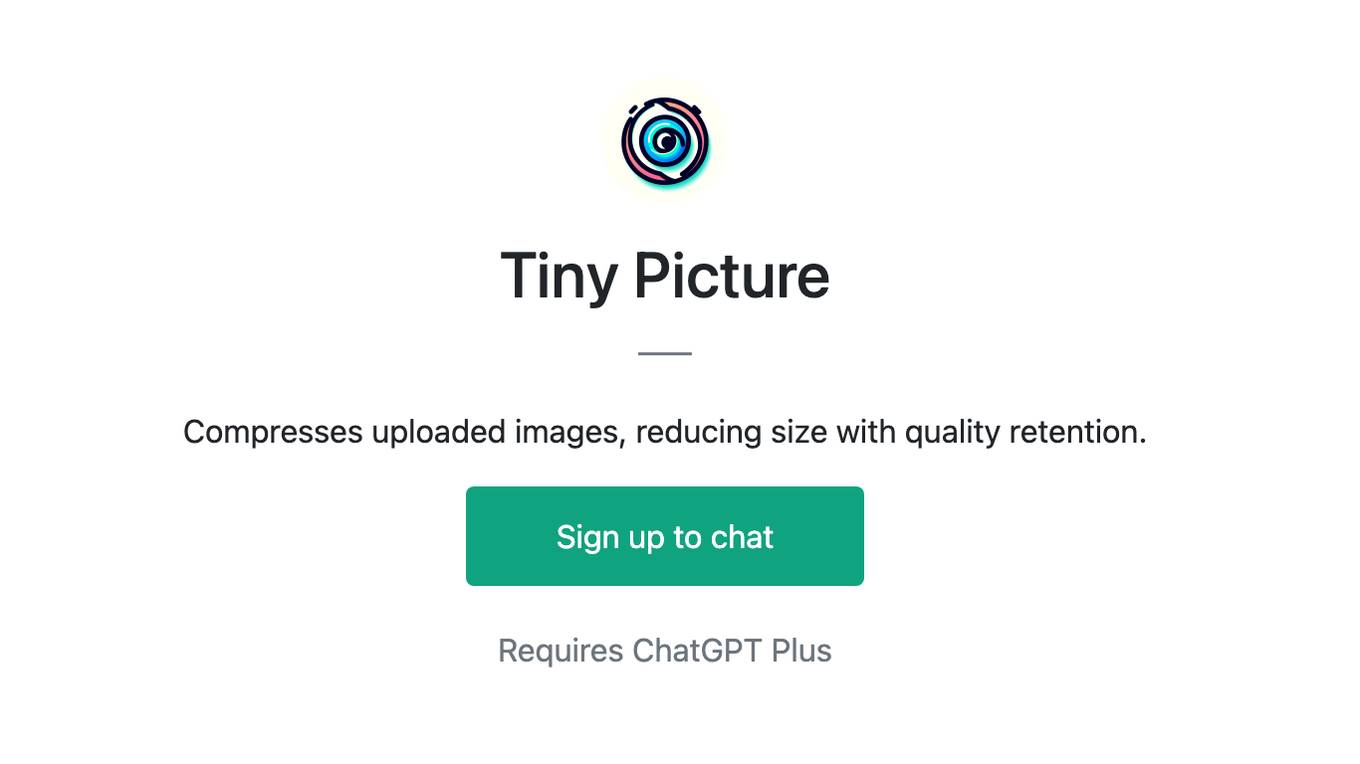Best AI tools for< Reducing Clinician Burnout >
20 - AI tool Sites
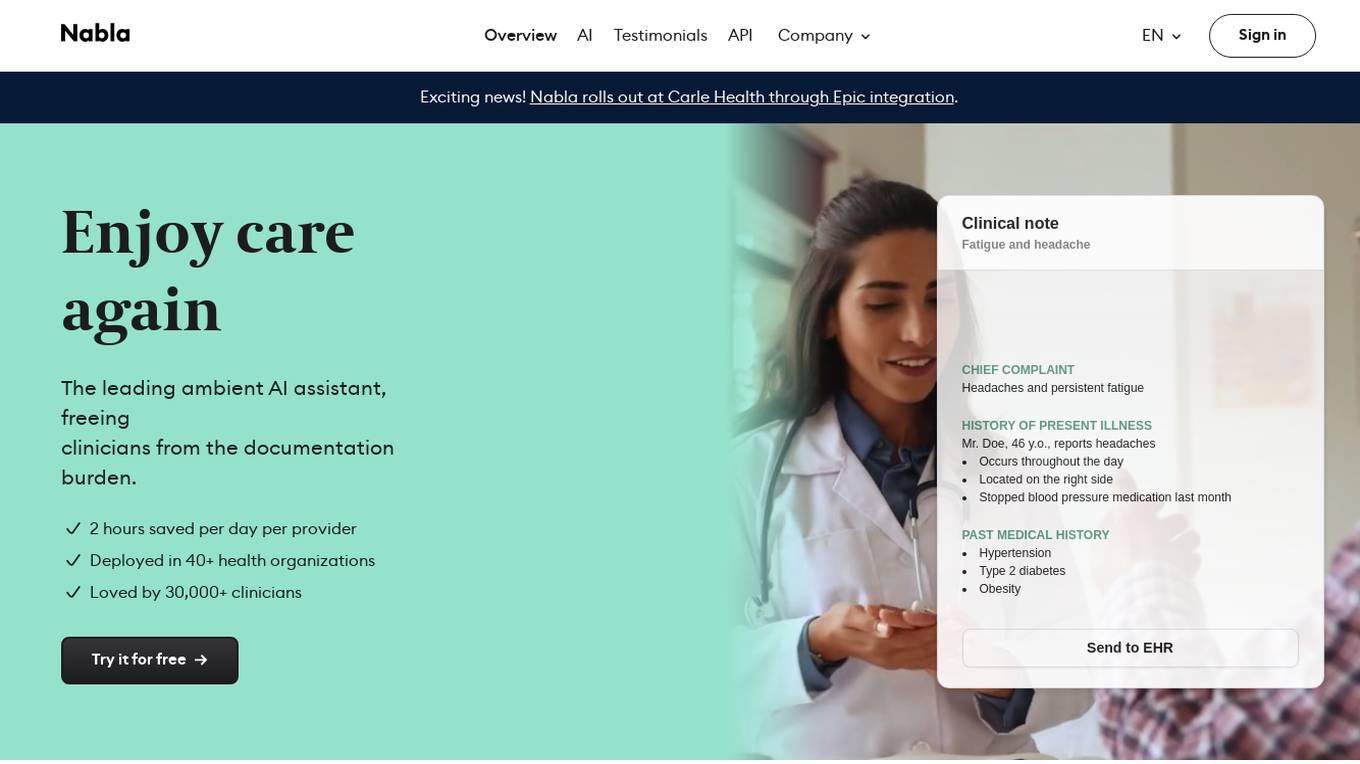
Nabla
Nabla is a leading ambient AI assistant designed to free clinicians from the burden of documentation. It saves clinicians 2 hours per day per provider by streamlining clinical documentation, allowing them to focus on patient care. With over 30,000 clinicians loving the application, Nabla provides detailed, accurate, and HIPAA-compliant visit or phone documentation in under a minute. The AI transcribe program is easy, convenient, and removes non-medical conversation, making it an indispensable tool for medical practitioners across various specialties.

Astra Health
Astra Health is Australia's leading AI scribe application designed for clinicians to enhance patient care and streamline clinical documentation. The platform offers multilingual support, efficient transcription, and secure documentation, ensuring compliance with Australian privacy standards. Clinicians can customize templates, consult or dictate in real-time, and seamlessly transfer notes to EMR/PMS systems. Astra Health empowers clinicians to focus on patient care by automating documentation tasks and improving accuracy.
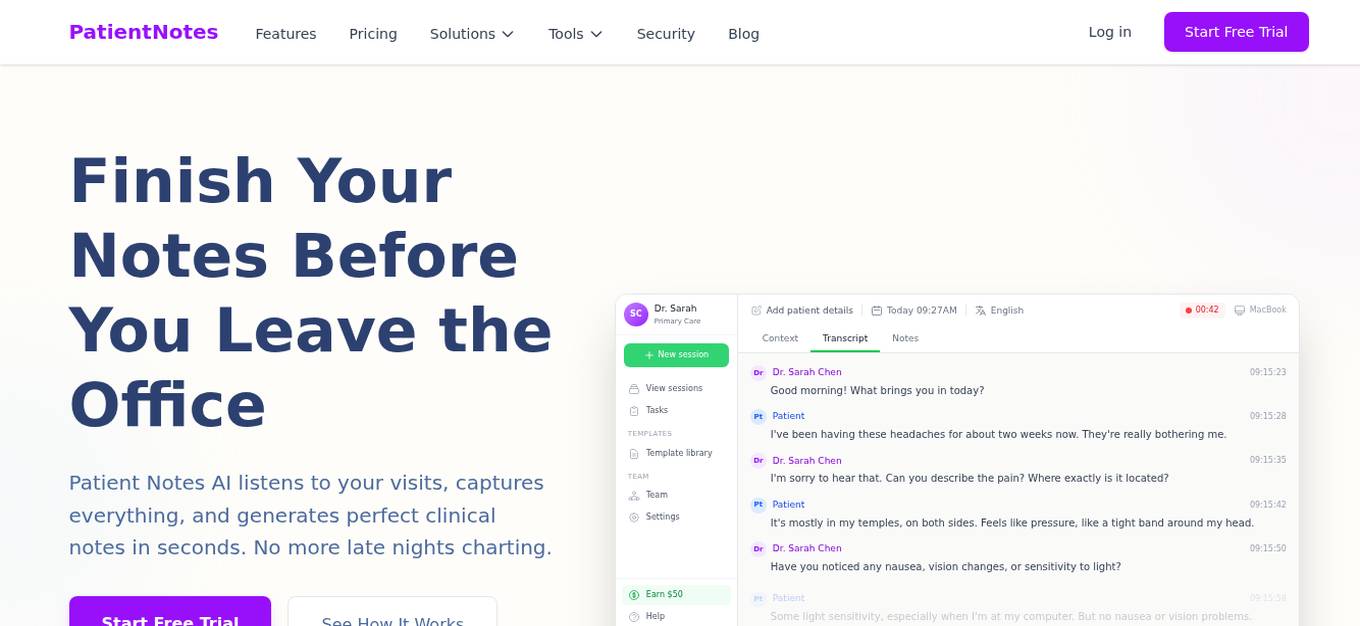
PatientNotes.ai
PatientNotes.ai is an AI-powered medical scribe application designed to assist healthcare providers in generating accurate clinical documentation efficiently. The application listens to patient encounters, transcribes conversations, and automatically generates structured notes, including SOAP notes, progress notes, and custom formats. PatientNotes.ai aims to streamline the documentation process, saving healthcare professionals valuable time and reducing the burden of manual data entry. The application is HIPAA compliant, ensuring the security and privacy of patient data. With features like customizable templates, ambient AI listening, easy EHR integration, and cross-device synchronization, PatientNotes.ai offers a comprehensive solution for clinical documentation needs.

Augmedix
Augmedix is a leading provider of AI-powered medical documentation solutions for healthcare systems, physician practices, and hospitals. Its products, including Augmedix Go, Augmedix Live, Augmedix Go Assist, and Augmedix Prep, leverage ambient AI technology to convert natural clinician-patient conversations into structured medical notes in real time. Augmedix aims to enhance the clinician-patient relationship by reducing documentation burden, improving productivity, and increasing patient satisfaction.
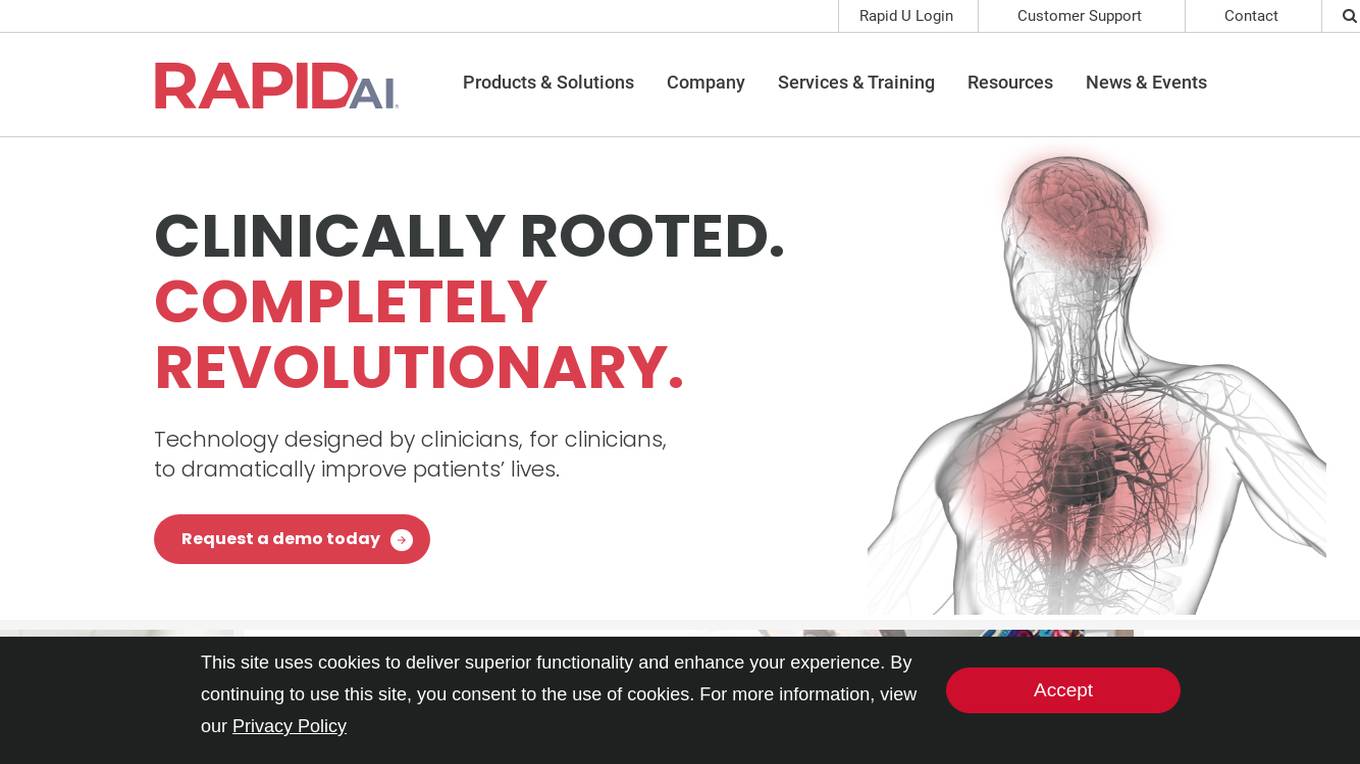
RapidAI
RapidAI is a software platform powered by AI that focuses on aneurysm, pulmonary embolism, and stroke. It offers a range of products and solutions designed to improve patient care and efficiency in hospitals. The technology is clinically rooted and revolutionary, developed by clinicians for clinicians. RapidAI's AI-based platform is known for its speed, scalability, and security, with customization options to meet specific hospital needs. The platform has been trusted by 2,200 hospitals, impacting 90 million lives over 15 years of technological development.

AiSOAP
AiSOAP is a cutting-edge AI medical scribe application that revolutionizes the process of creating SOAP notes for healthcare professionals. It records, transcribes, and generates customized SOAP notes, significantly reducing documentation time by up to 95%. AiSOAP offers a seamless integration with EHR/EMR systems, allowing clinicians to focus more on providing compassionate care to patients or reclaiming their time for personal activities.
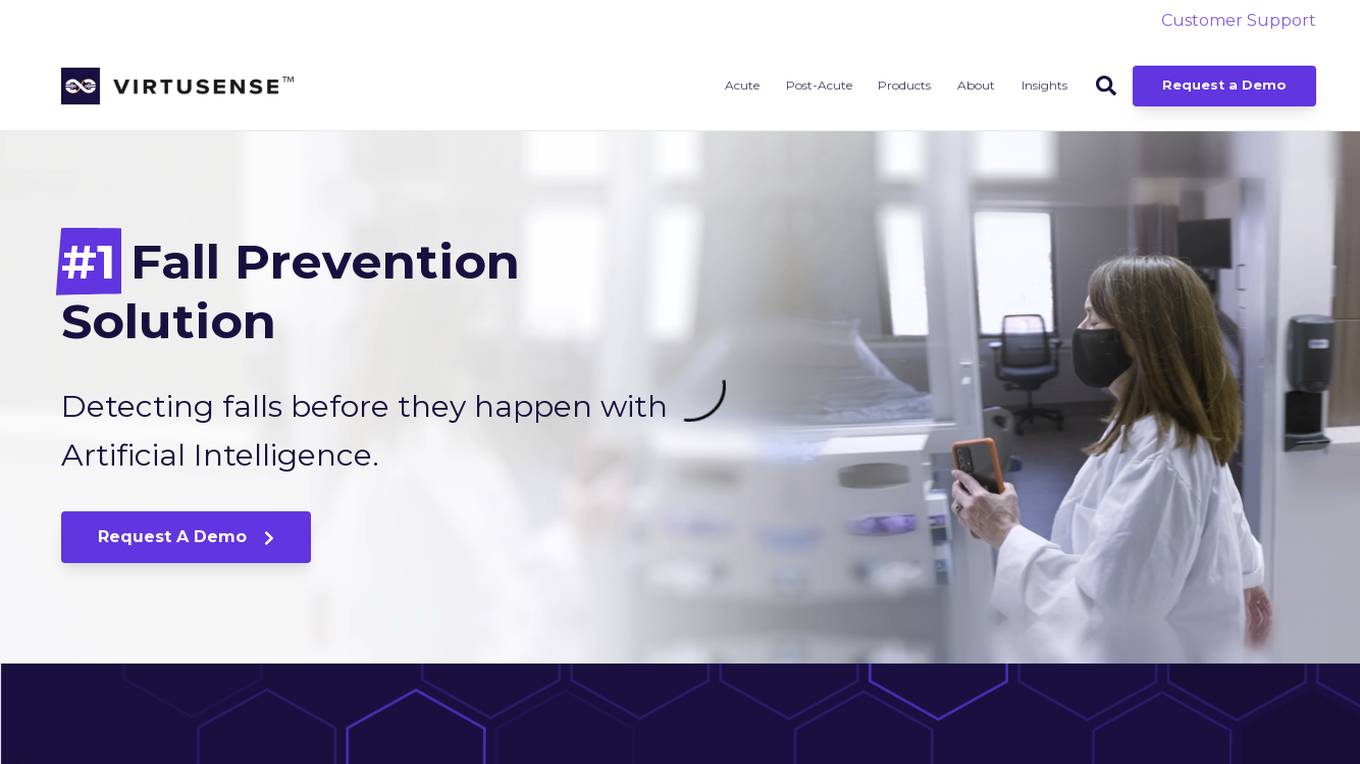
VirtuSense Technologies
VirtuSense Technologies is a leading provider of fall prevention and remote patient monitoring (RPM) solutions powered by artificial intelligence (AI). Their AI-driven solutions, VSTAlert and VSTBalance, are designed to help healthcare providers reduce falls, improve patient safety, and enhance care delivery. VSTAlert is a fall prevention system that uses AI to detect falls before they happen, reducing the risk of injury and improving patient outcomes. VSTBalance is a balance assessment tool that helps clinicians identify patients at risk of falling and provides personalized exercises to improve their balance and mobility. VirtuSense's solutions integrate with various healthcare systems and are used by hospitals, post-acute care facilities, and ambulatory care centers to improve patient care and reduce costs.
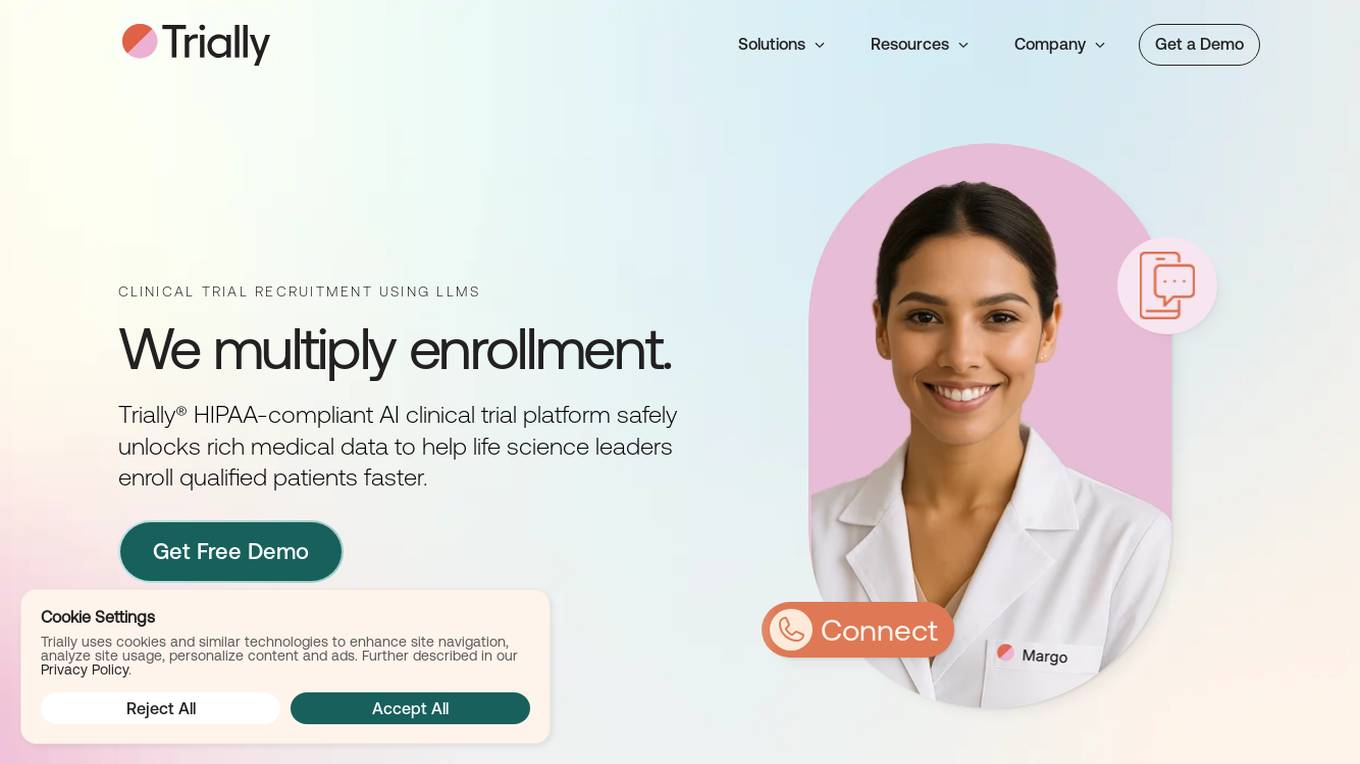
Trially AI
Trially AI is a HIPAA-compliant AI clinical trial platform that leverages advanced technology to help life science leaders enroll qualified patients faster. The platform uses AI algorithms to unlock rich medical data, match patients to trials, and improve enrollment rates. Trially AI is proven to deliver superior results 4x faster than other technology providers, with features like multiplying enrollment, reducing screen fails, and increasing eligibility accuracy. It benefits sponsors, CROs, research sites, and hospitals by improving enrollment rates, saving time on chart reviews, and enhancing site success outcomes.
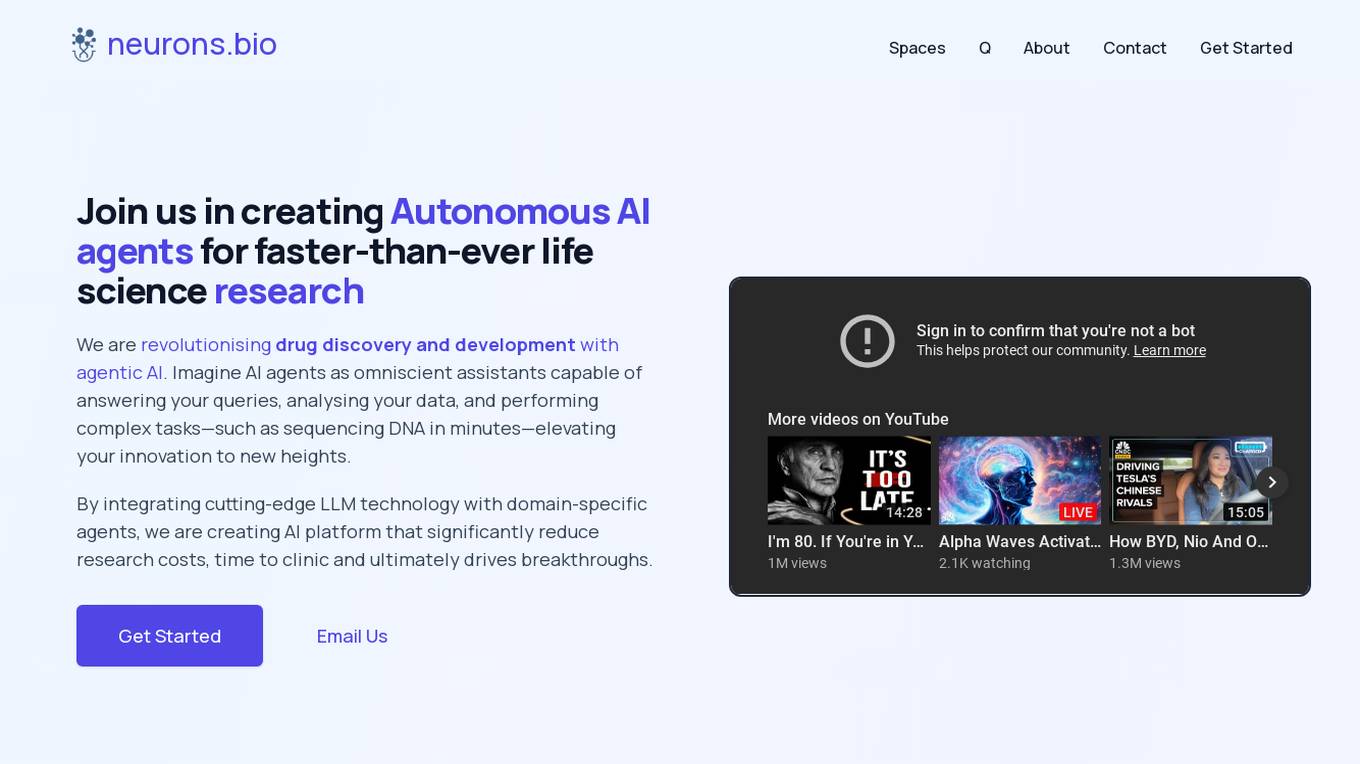
neurons.bio
neurons.bio is an AI application that offers a unique collection of over 100 AI agents designed for drug development, medicine, and life science research. These agents perform specific tasks efficiently, retrieve data from various sources, and provide insights to accelerate research processes. The platform aims to revolutionize drug discovery and development by integrating cutting-edge LLM technology with domain-specific agents, reducing research costs and time to clinic.
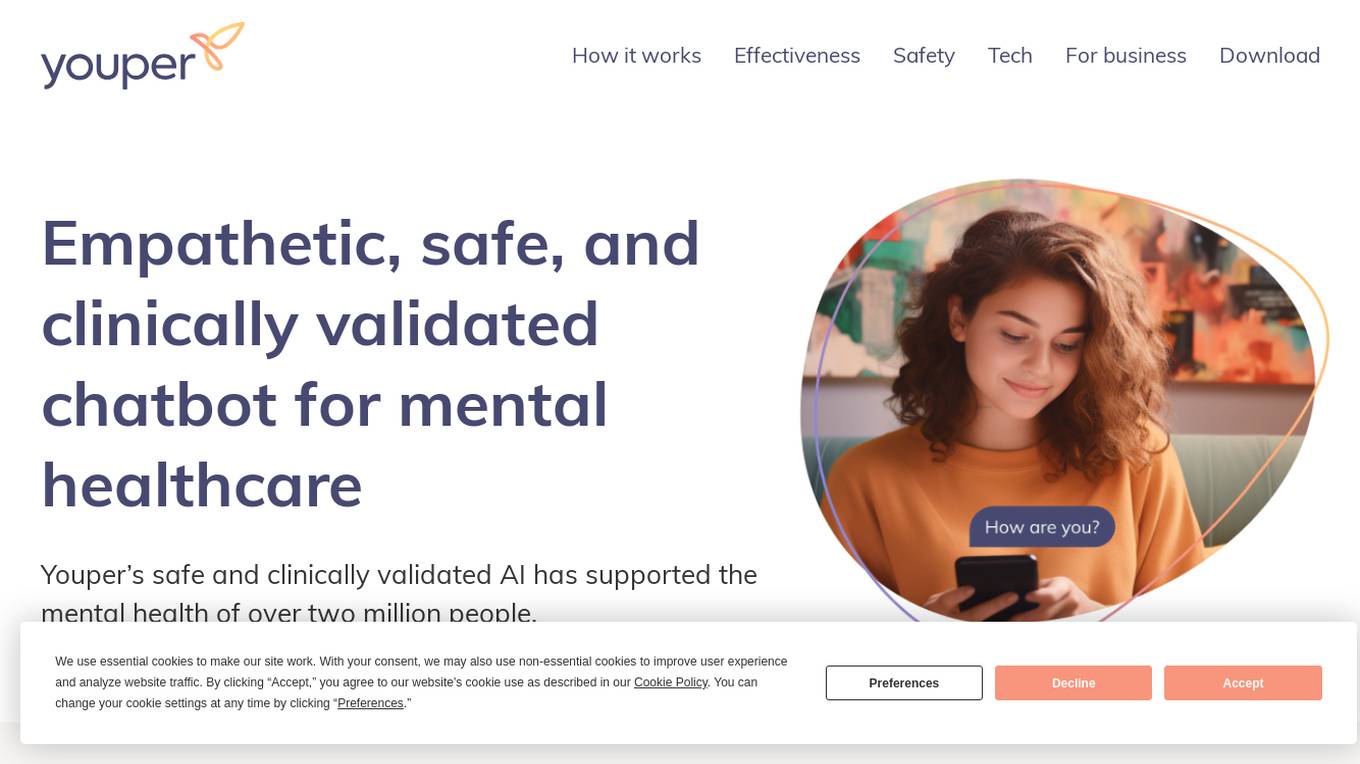
Youper
Youper is an empathetic, safe, and clinically validated AI chatbot designed for mental healthcare. It combines psychology and artificial intelligence to provide support for emotional health issues. Youper has been proven clinically effective at reducing symptoms of anxiety and depression, making mental healthcare accessible to millions of users. The application is used by providers, employers, payers, and life science companies to scale their services and improve mental healthcare outcomes.

Biofourmis
Biofourmis is a healthcare technology company that provides a connected technology platform for care delivery and drug development. The platform enables healthcare systems and pharmaceutical companies to deliver care and conduct clinical trials remotely, and to collect and analyze data to improve patient outcomes. Biofourmis's solutions have been shown to improve clinical, operational, and economic outcomes, such as reducing 30-day readmissions by 70%, detecting deterioration 21 hours sooner, and reducing cost of care by up to 38%.
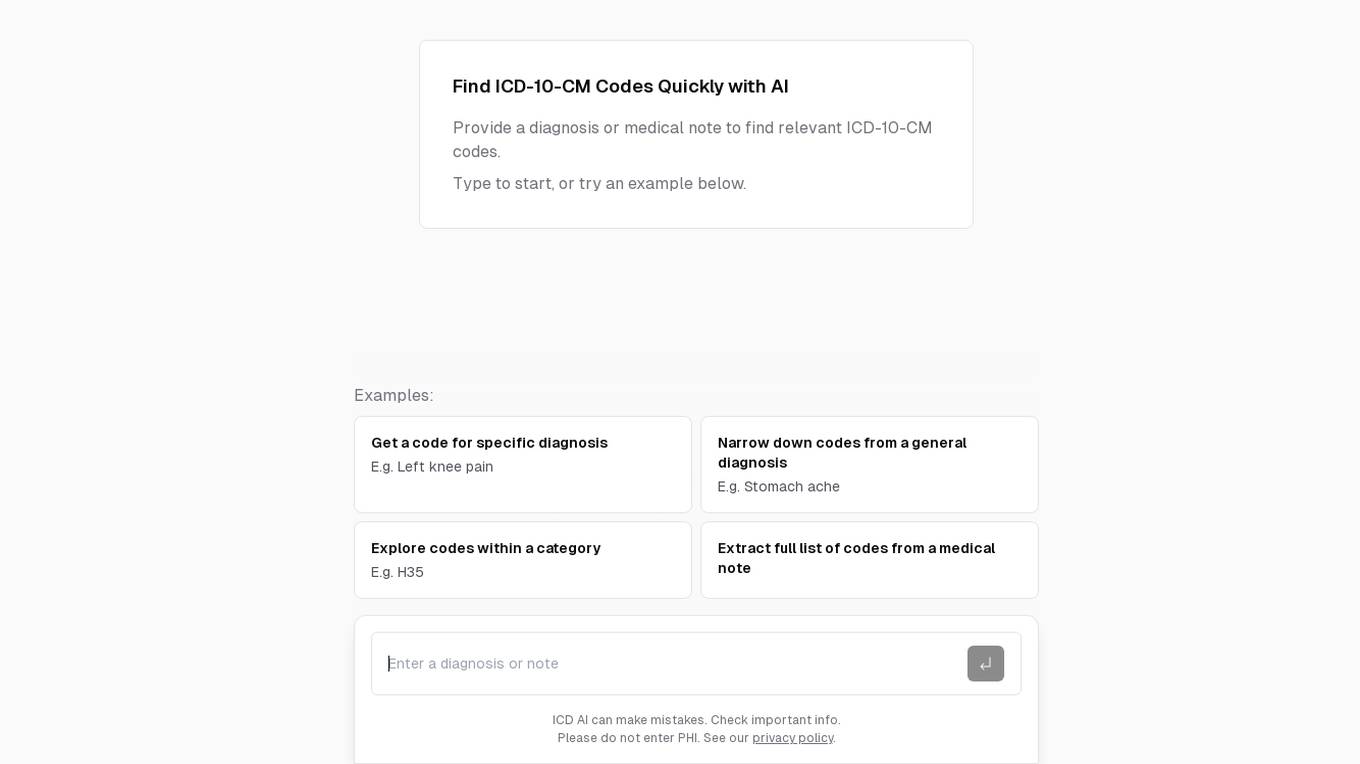
ICD AI
ICD AI is an advanced artificial intelligence tool designed to assist healthcare professionals in accurately assigning diagnostic codes to patient records. The tool utilizes machine learning algorithms to analyze medical data and suggest appropriate ICD codes, streamlining the coding process and reducing errors. With its user-friendly interface and robust features, ICD AI is revolutionizing medical coding practices and improving efficiency in healthcare facilities.
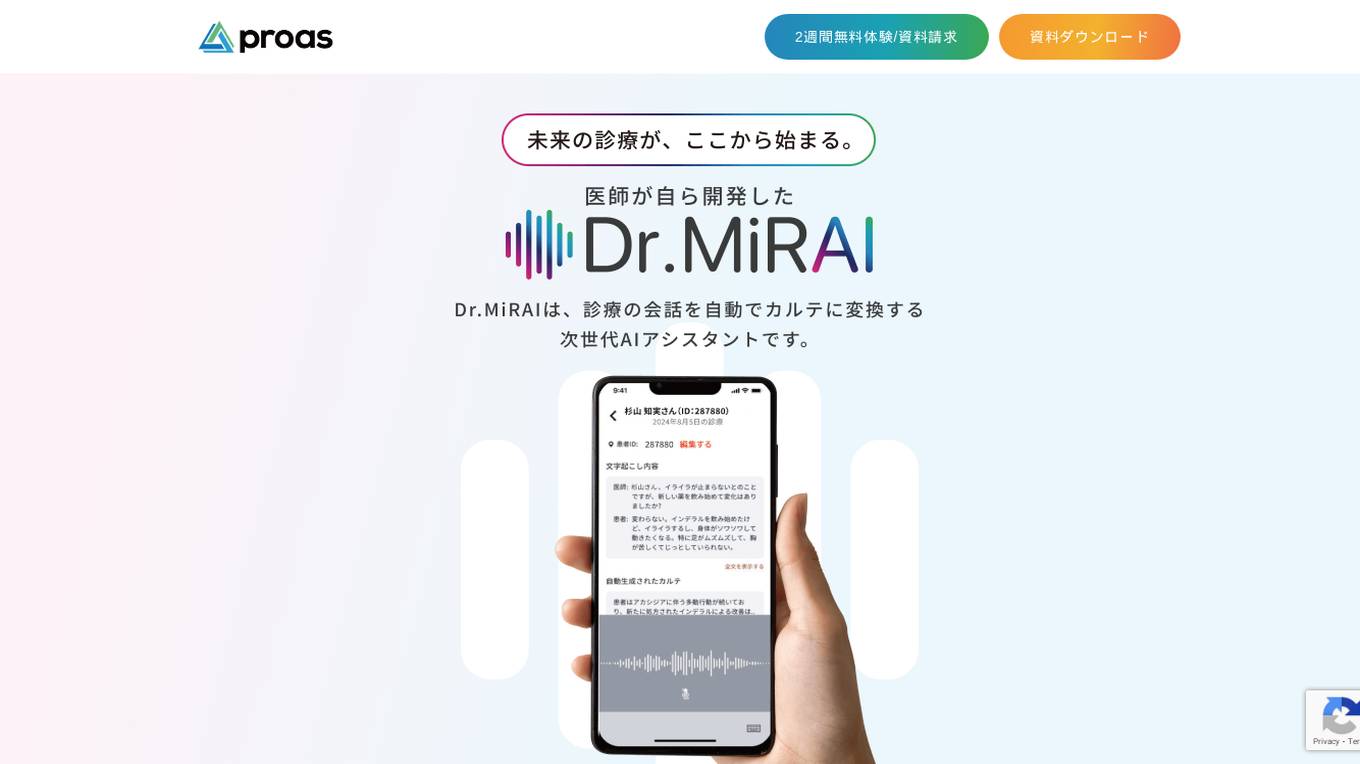
Dr.MiRAI
Dr.MiRAI is a next-generation AI assistant that automatically converts medical conversations into medical records. It simplifies the process of generating electronic medical records by using AI to transcribe voice data from medical consultations. The application helps save time spent on recording tasks, allowing healthcare professionals to focus more on patient interactions. It also ensures accuracy by reducing human errors in manual record-keeping. Dr.MiRAI offers features such as automatic conversion to required document formats, integration with existing electronic medical record systems, and continuous learning capabilities.
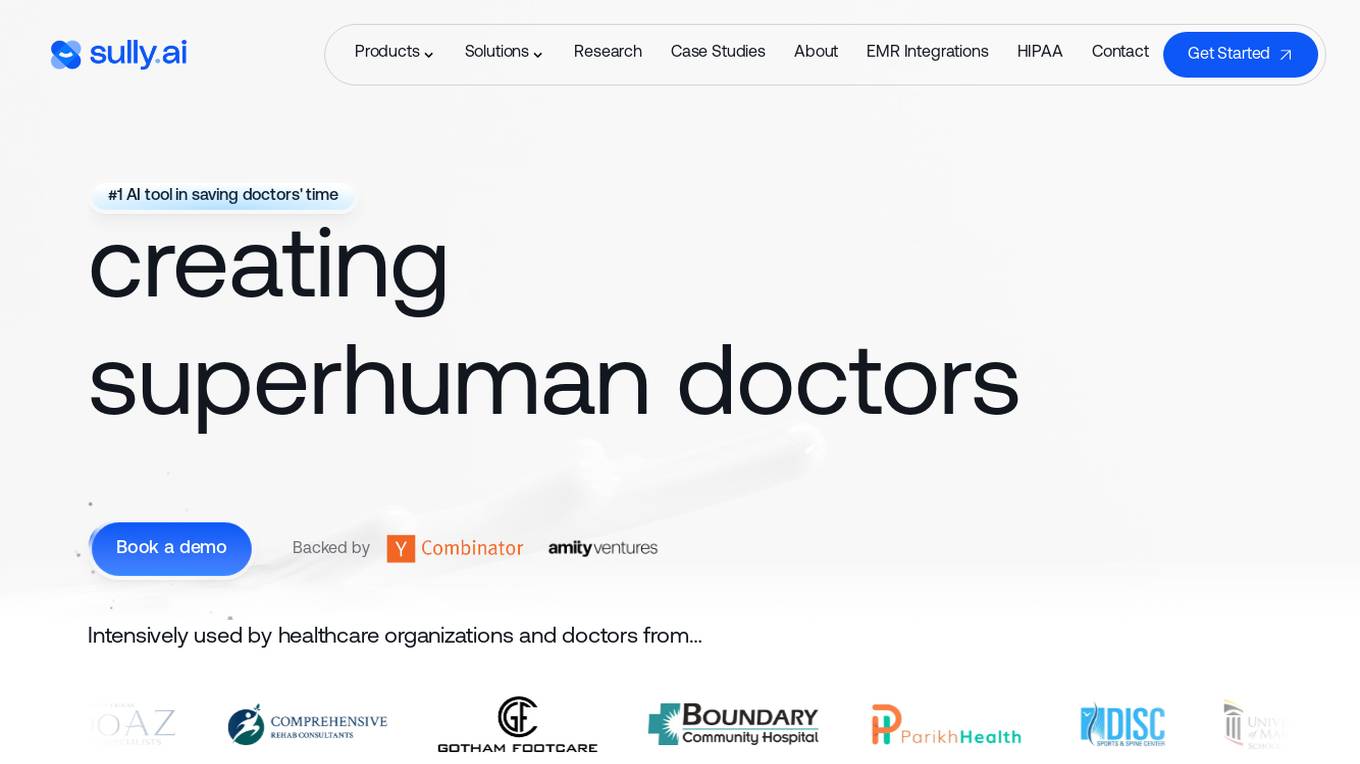
Sully.ai
Sully.ai is the #1 all-in-one AI solution designed to save doctors' time by creating superhuman doctors. The platform offers a comprehensive set of features such as pre-visit screening, decision support, scribing, diagnosis assistance, clinical planning, and post-visit automations. Sully.ai is an automation platform that works seamlessly with Electronic Medical Records (EMR) systems, providing personalized and multilingual support for healthcare professionals. The AI model is HIPAA compliant and trained on real-life doctor encounters to enhance decision-making and streamline administrative tasks. With proven results in reducing repetitive tasks and improving efficiency, Sully.ai aims to transform healthcare delivery by empowering doctors to focus on patient care.
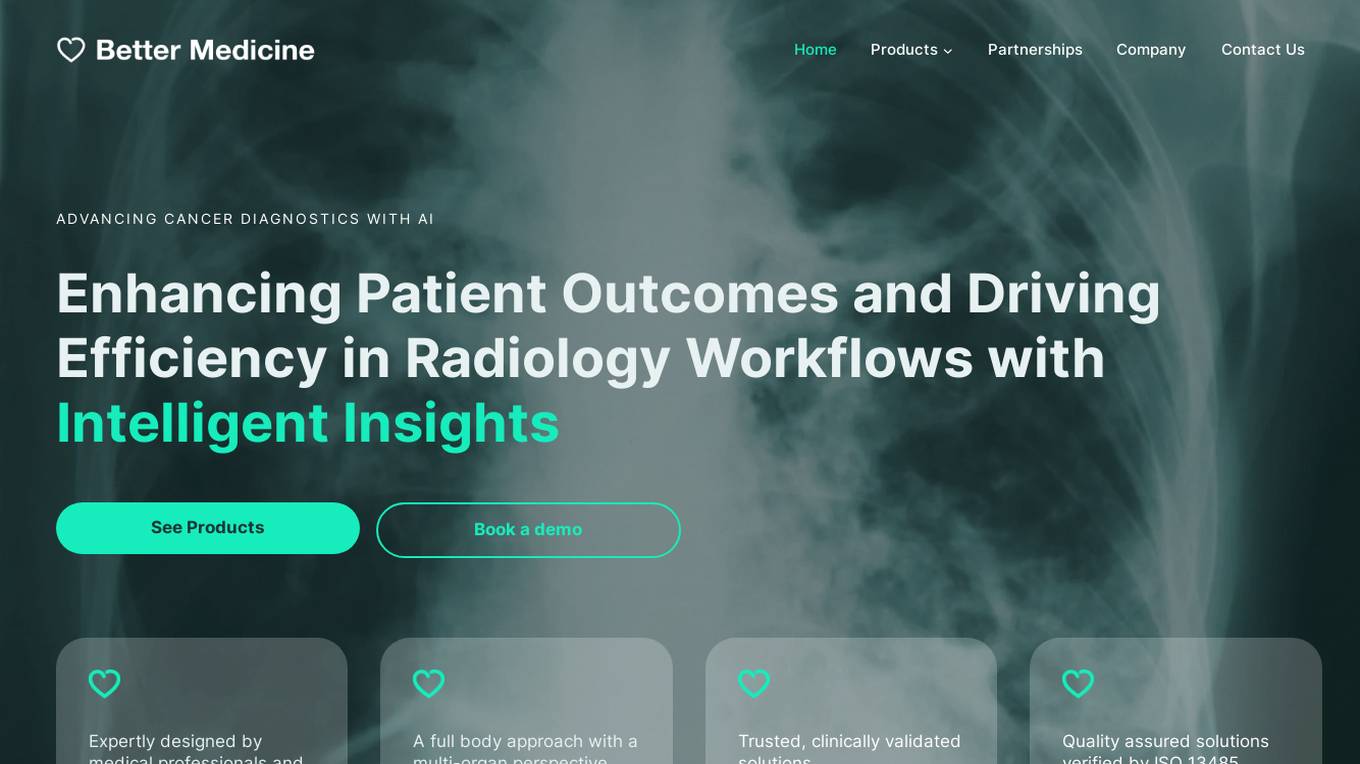
BetterMedicine
BetterMedicine is an AI software designed for cancer diagnostics and detection. It offers AI-powered solutions to enhance patient outcomes and drive efficiency in radiology workflows. The software is expertly designed by medical professionals and AI specialists, providing trusted and clinically validated solutions. BetterMedicine aims to address inefficiencies in radiology by integrating AI-powered software for detecting lesions on CT scans seamlessly into the workflow, thereby improving efficiency and reducing the risk of oversight. The application focuses on improving patient outcomes, reducing errors, and enhancing the wellbeing of radiology professionals.
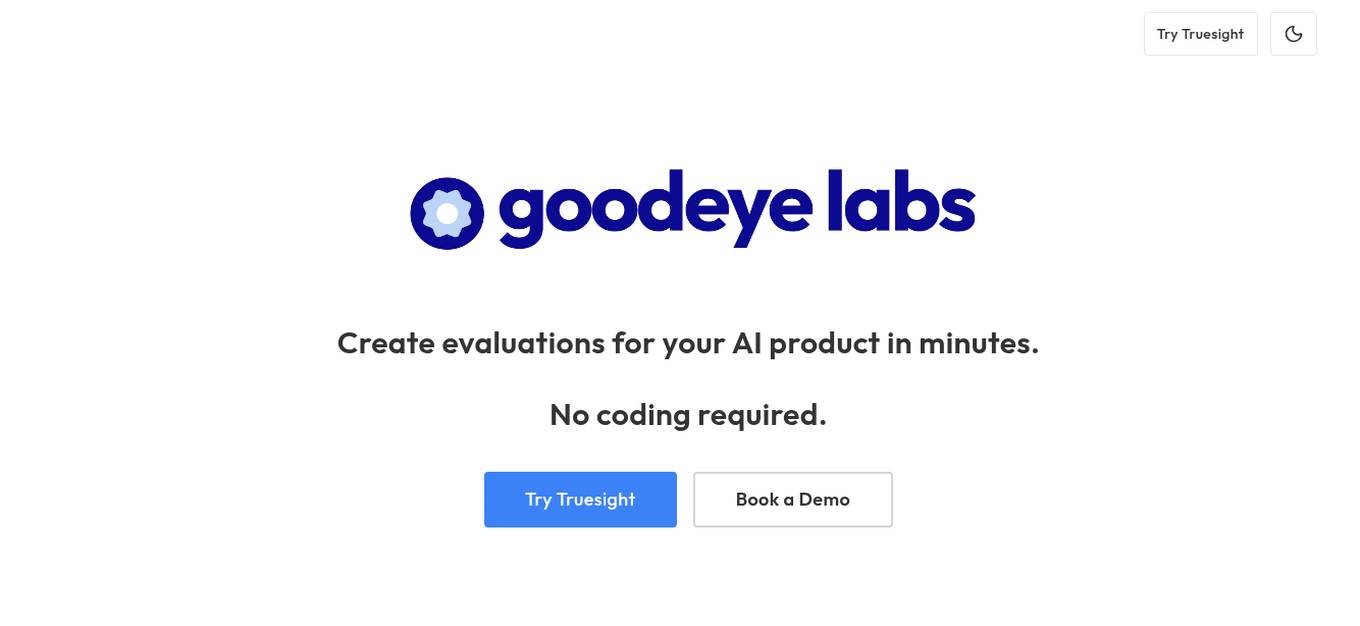
Truesight
Goodeye Labs offers Truesight, an AI evaluation tool designed for domain experts to assess the performance of AI products without the need for extensive technical expertise. Truesight bridges the gap between domain knowledge and technical implementation, enabling users to evaluate AI-generated content against specific standards and factors. By empowering domain experts to provide judgment on AI performance, Truesight streamlines the evaluation process, reducing costs, meeting deadlines, and enhancing the reliability of AI products.
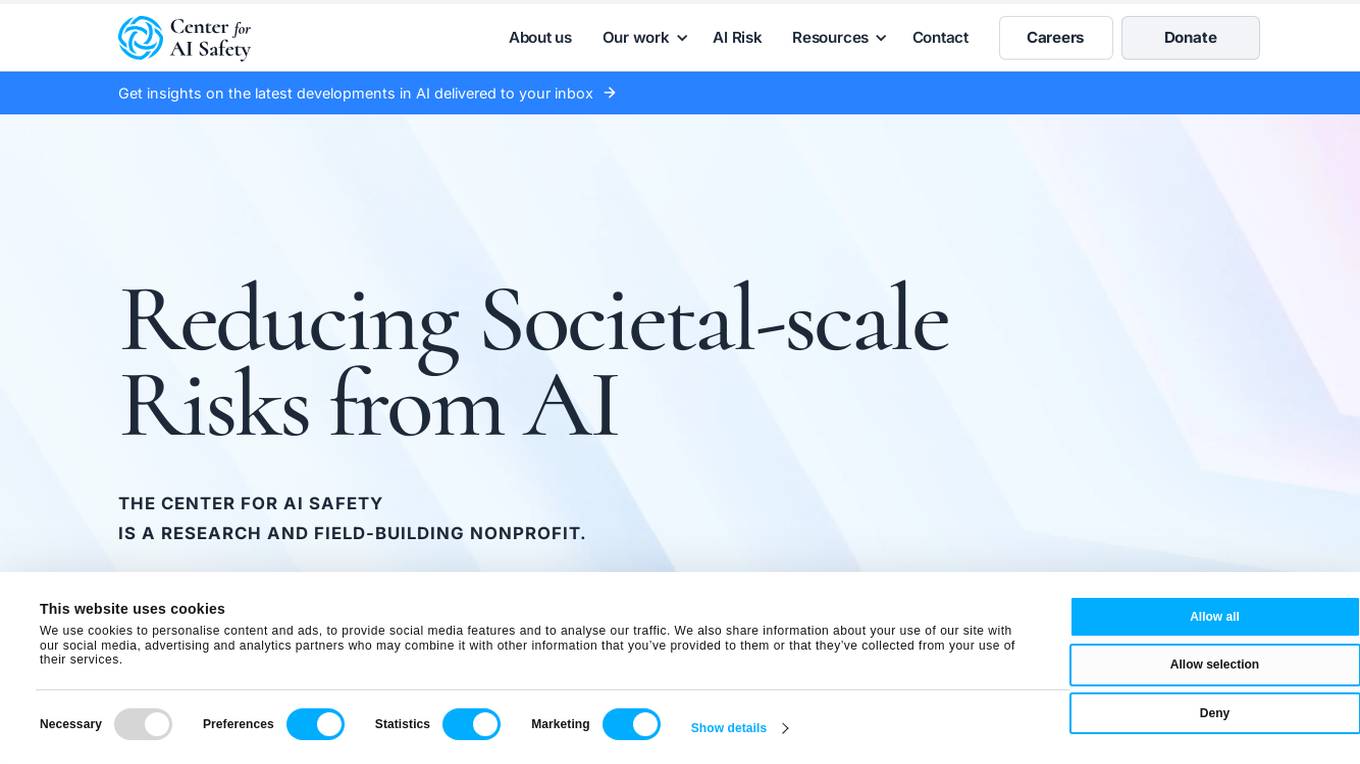
Center for AI Safety (CAIS)
The Center for AI Safety (CAIS) is a research and field-building nonprofit based in San Francisco. Their mission is to reduce societal-scale risks associated with artificial intelligence (AI) by conducting impactful research, building the field of AI safety researchers, and advocating for safety standards. They offer resources such as a compute cluster for AI/ML safety projects, a blog with in-depth examinations of AI safety topics, and a newsletter providing updates on AI safety developments. CAIS focuses on technical and conceptual research to address the risks posed by advanced AI systems.
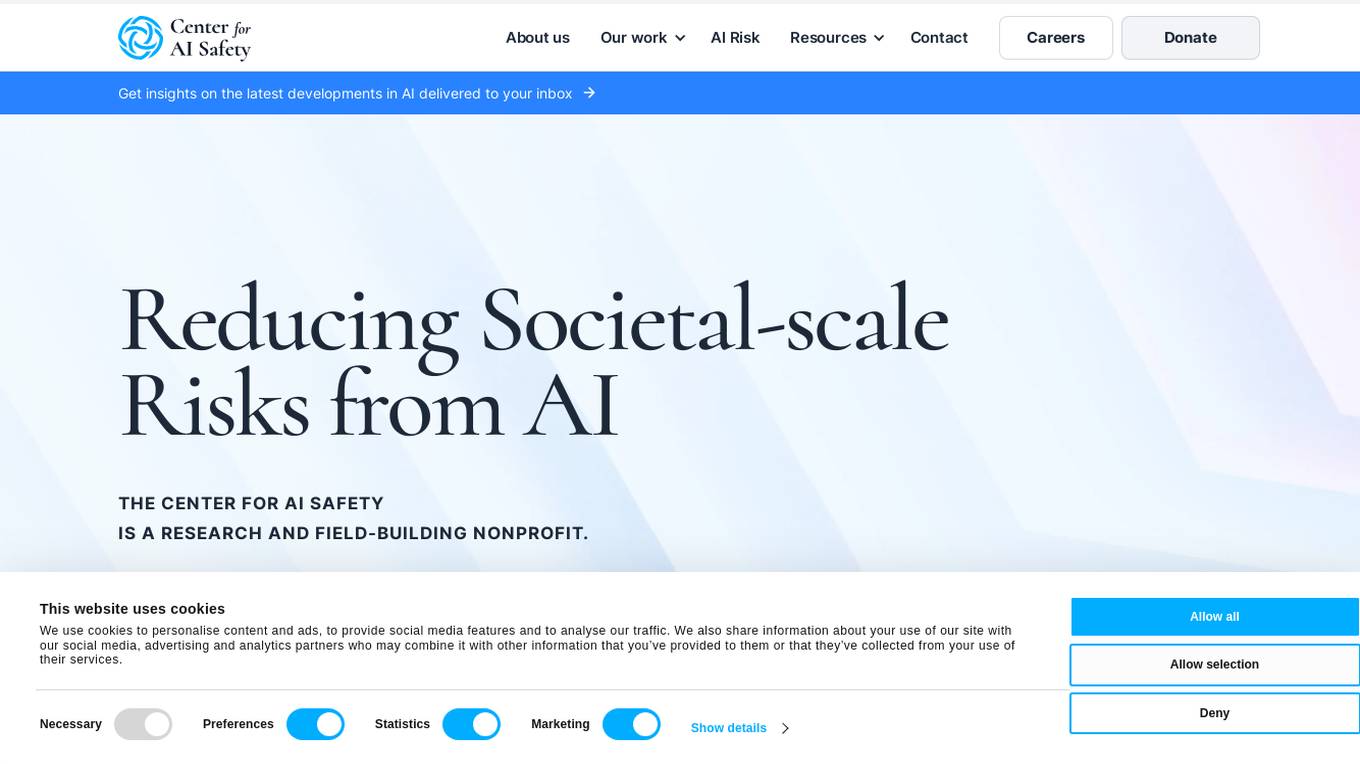
Center for AI Safety (CAIS)
The Center for AI Safety (CAIS) is a research and field-building nonprofit organization based in San Francisco. They conduct impactful research, advocacy projects, and provide resources to reduce societal-scale risks associated with artificial intelligence (AI). CAIS focuses on technical AI safety research, field-building projects, and offers a compute cluster for AI/ML safety projects. They aim to develop and use AI safely to benefit society, addressing inherent risks and advocating for safety standards.
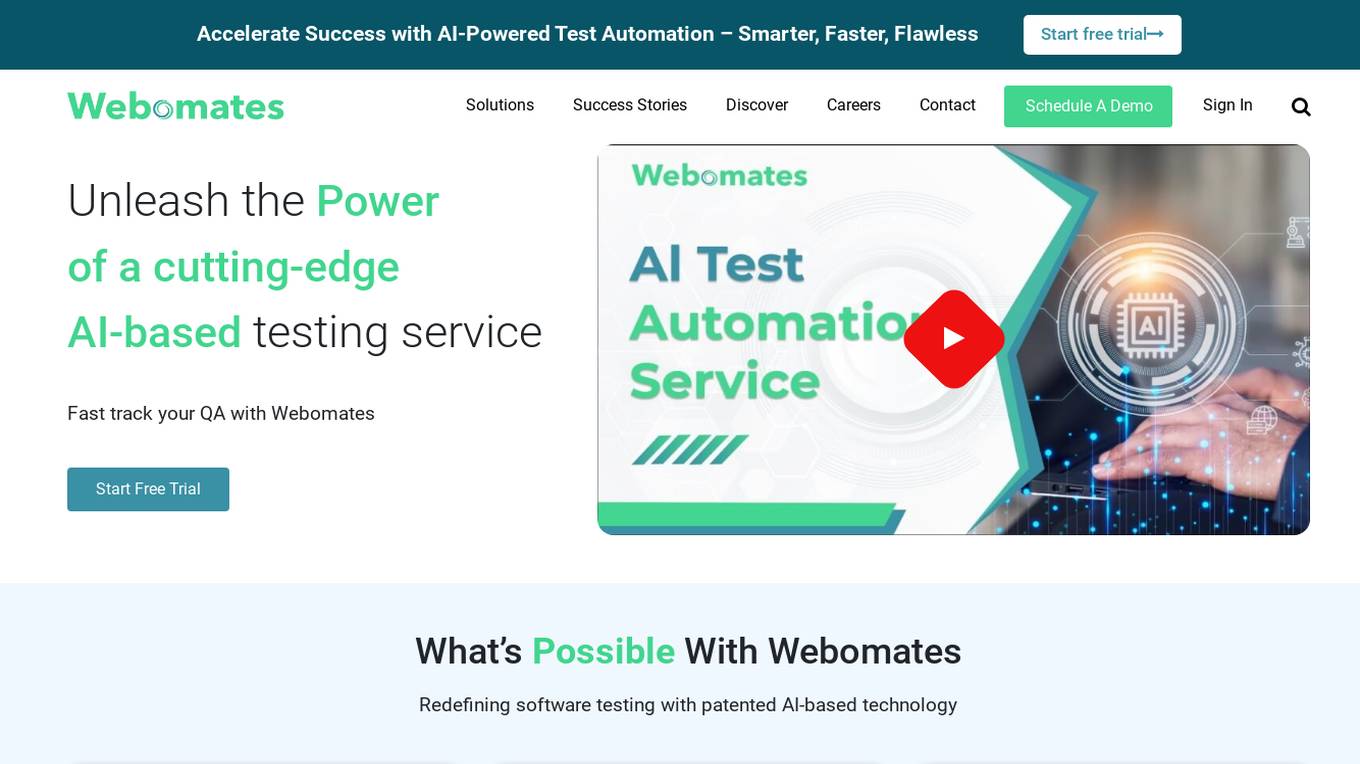
Webomates
Webomates is an AI-powered test automation platform that helps users release software faster by providing comprehensive AI-enhanced testing services. It offers solutions for DevOps, code coverage, media & telecom, small and medium businesses, cross-browser testing, and intelligent test automation. The platform leverages AI and machine learning to predict defects, reduce false positives, and accelerate software releases. Webomates also features intelligent automation, smart reporting, and scalable payment options. It seamlessly integrates with popular development tools and processes, providing analytics and support for manual and AI automation testing.
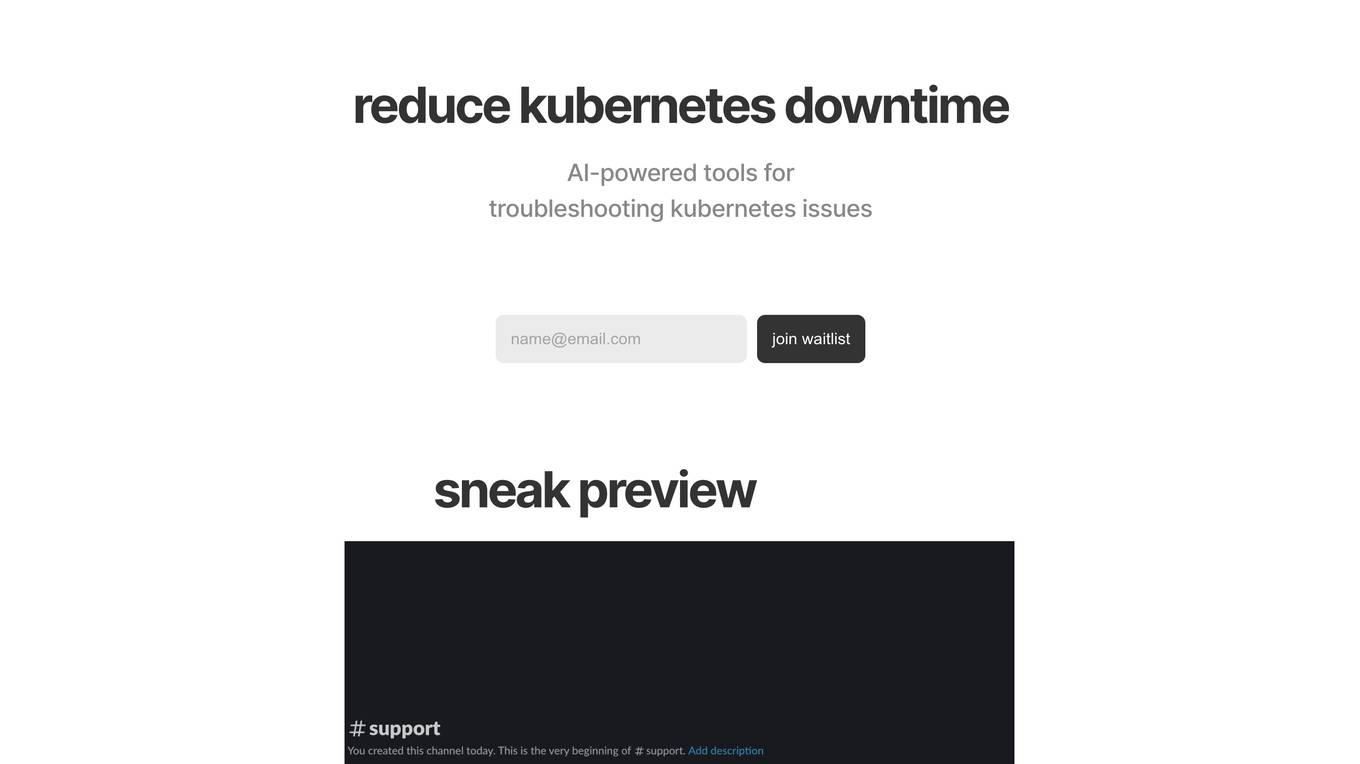
KubeHelper
KubeHelper is an AI-powered tool designed to reduce Kubernetes downtime by providing troubleshooting solutions and command searches. It seamlessly integrates with Slack, allowing users to interact with their Kubernetes cluster in plain English without the need to remember complex commands. With features like troubleshooting steps, command search, infrastructure management, scaling capabilities, and service disruption detection, KubeHelper aims to simplify Kubernetes operations and enhance system reliability.
0 - Open Source AI Tools
8 - OpenAI Gpts
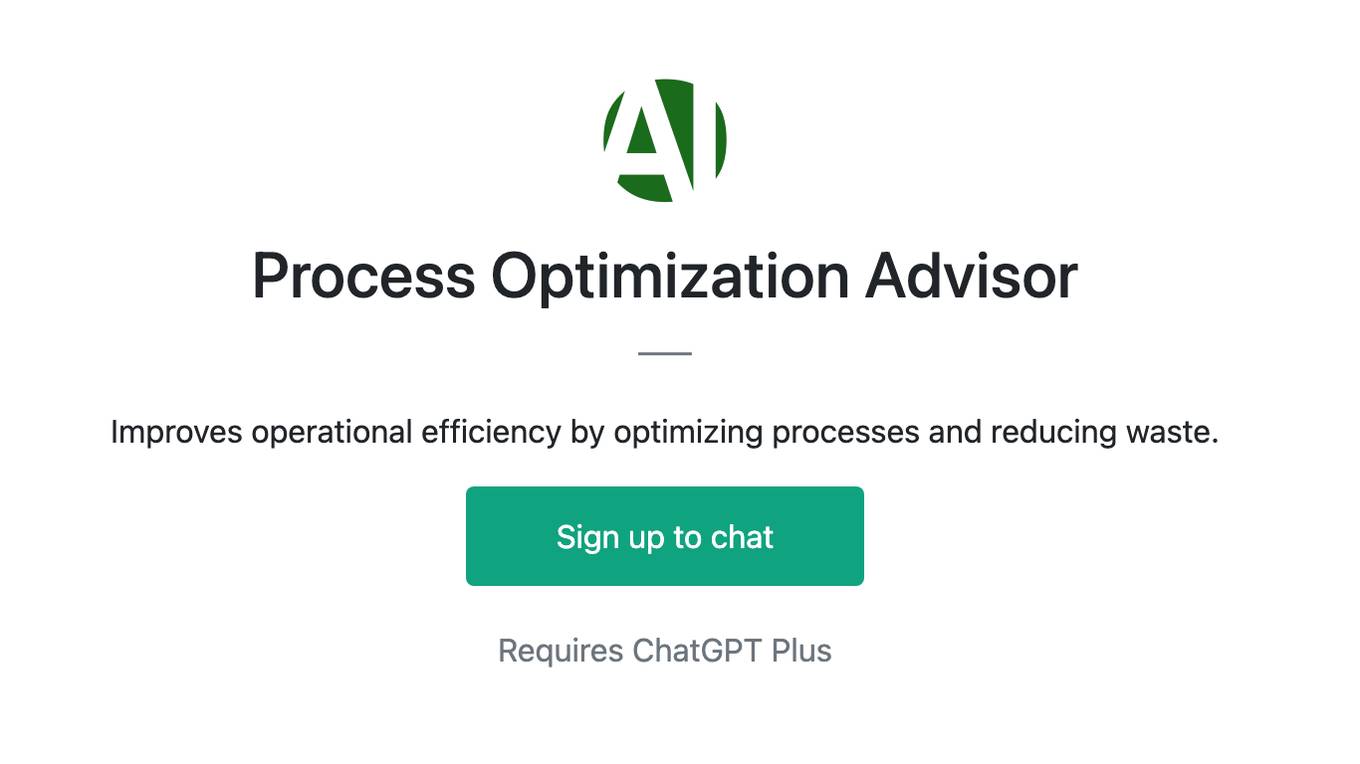
Process Optimization Advisor
Improves operational efficiency by optimizing processes and reducing waste.
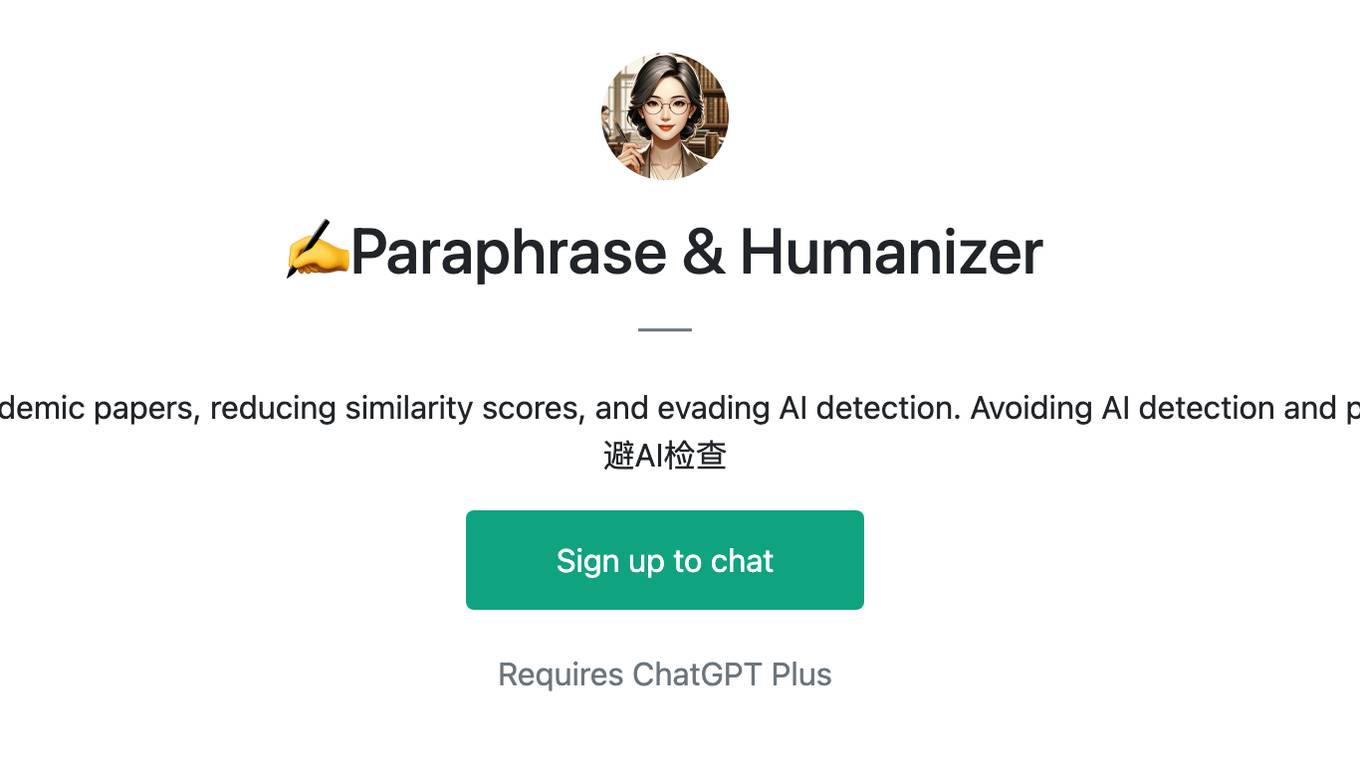
✍️Paraphrase & Humanizer
Expert in sentence refinement, polishing academic papers, reducing similarity scores, and evading AI detection. Avoiding AI detection and plagiarism checks. 论文润色、论文降重、规避AI检查
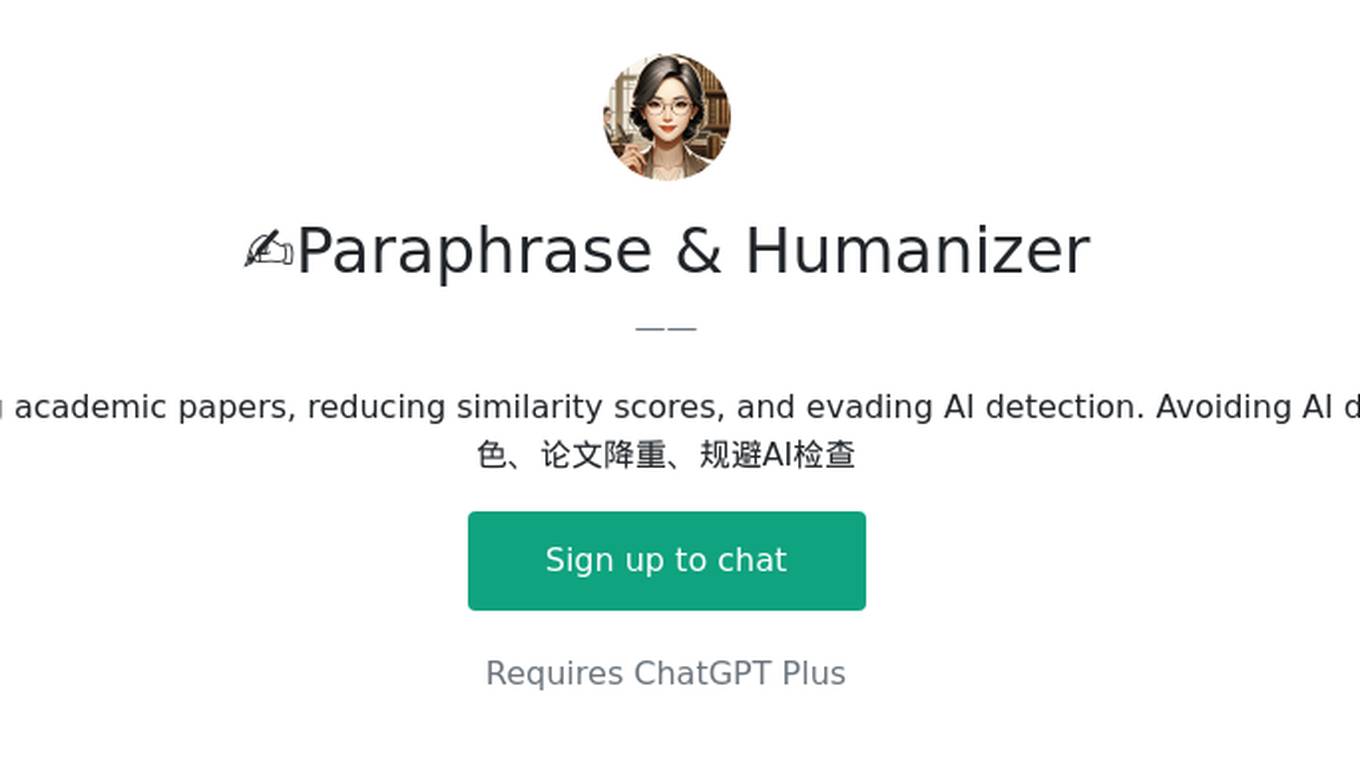
✍️Paraphrase & Humanizer
Expert in sentence refinement, polishing academic papers, reducing similarity scores, and evading AI detection. Avoiding AI detection and plagiarism checks. 论文润色、论文降重、规避AI检查
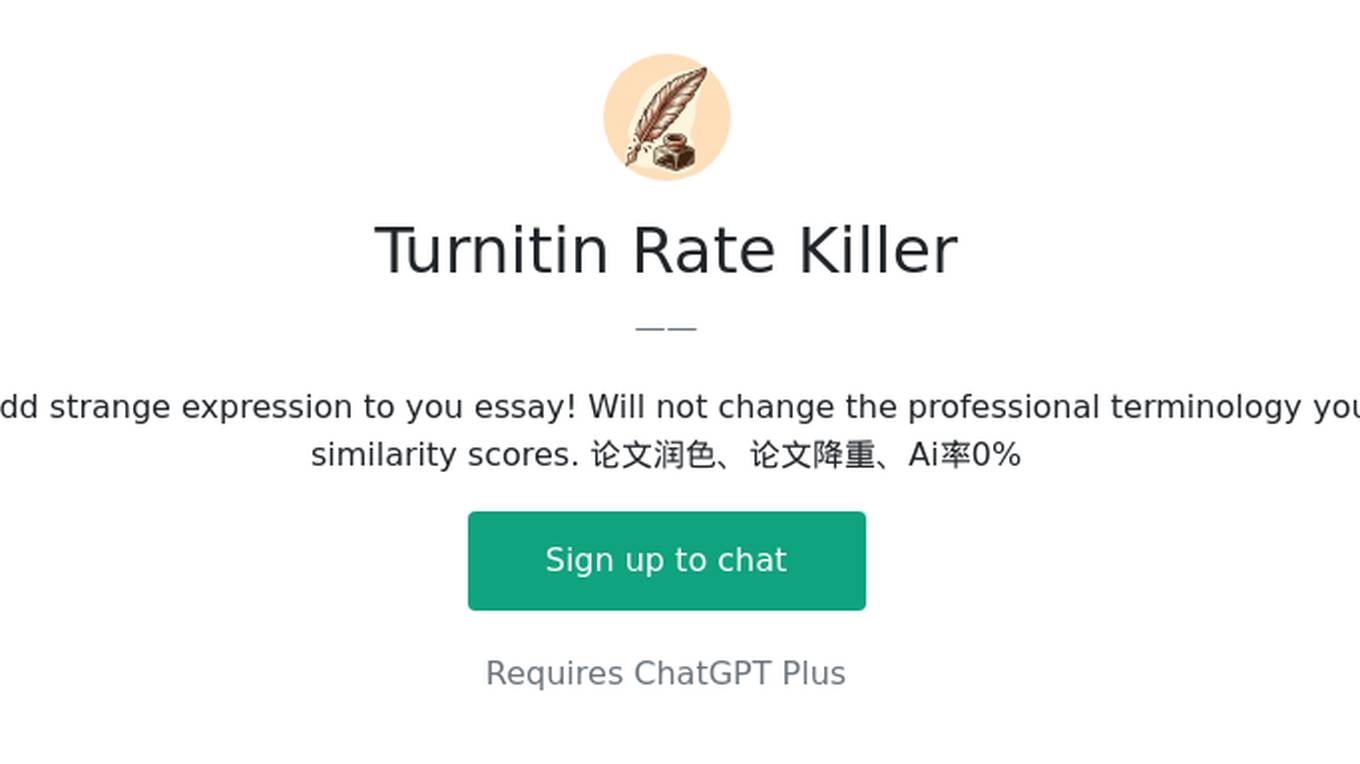
Turnitin Rate Killer
Help your essay get 0% rate! Will not add strange expression to you essay! Will not change the professional terminology you used in the essay! Reducing Turnitin similarity scores. 论文润色、论文降重、Ai率0%

🌱 Clean Energy Companion 🍃
Your eco-friendly aide for sustainable living! 🌟 Offers insights on renewable energy sources, tips for reducing carbon footprint, and green tech trends. 🌍


